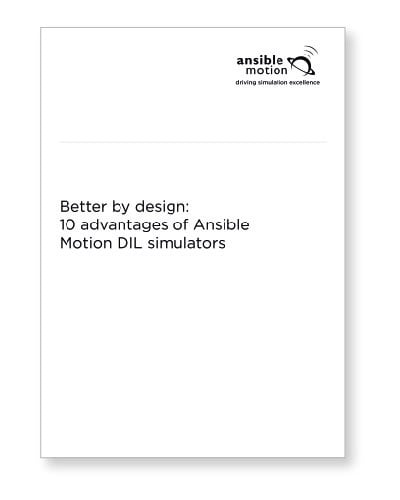 Motion sickness has become a very real issue for engineers developing and testing autonomous vehicle technologies. Automotive simulators can reach such high levels of realism that they may cause their 'drivers' to experience motion sickness similar to that in a real car. Overcoming the issue is vital for ensuring that autonomous vehicle passengers don't suffer the same 'stop the car, I've got to get out' nausea.
Motion sickness has become a very real issue for engineers developing and testing autonomous vehicle technologies. Automotive simulators can reach such high levels of realism that they may cause their 'drivers' to experience motion sickness similar to that in a real car. Overcoming the issue is vital for ensuring that autonomous vehicle passengers don't suffer the same 'stop the car, I've got to get out' nausea.
Phil Morse, Technical Liaison Manager of Ansible Motion, a U.K.-based simulator specialist, cites a recent University of Michigan study which concluded that in some situations, up to 31% of adults are likely to experience significant discomfort in an autonomous car.
“Other studies predict even higher percentages," Morse noted. "One, by the University of Coventry [U.K.], refers to motion sickness in automated cars as being ‘the elephant in the room.’”
The problem starts with occupants take their eyes off the road. Causes of car-sickness include reading and texting, laptop computer use, watching videos and gaming—each a plausible scenario for occupants (including the “driver”) during an autonomous car journey.



